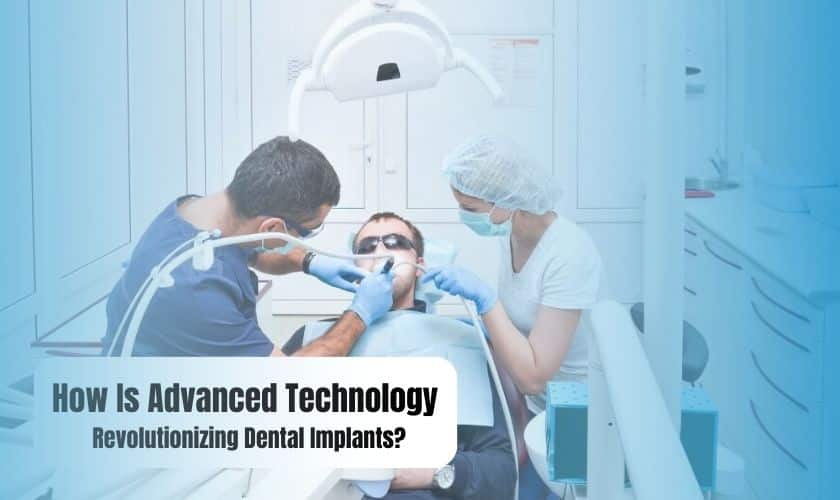Advanced dental technology is revolutionizing many aspects of dental implants, from how dentists plan and place them to the materials used in their fabrication. With this technological advancement, dental implant procedures are becoming more successful, with fewer complications and better outcomes. From 3D-printed dental implants to computer-guided dental implant surgery, dental professionals have access to a new range of advanced technologies transforming the dental implant industry.
Improved Materials for Implant Placement
Biocompatible Metals
One technology revolutionizing dental implants is biocompatible metals, such as titanium or zirconia. These metals provide a more secure bond between the dental implant and jawbone while allowing faster healing times. Biocompatible metals are also highly resistant to corrosion, making them a viable option for dental implants placed in the mouth.
Ceramic Implants
Ceramic dental implants are also becoming more popular due to their durability and biocompatibility. Unlike metal dental implants, ceramic dental implants do not cause an allergic reaction in some patients. Furthermore, these dental implants are non-porous and provide a strong bond between the jawbone and dental implant while also looking aesthetically pleasing.
3D Printed Implants
3D-printed dental implants provide dentists with greater accuracy and precision when planning and placing dental implants. The technology uses imaging software to create a 3D dental implant model, allowing dentists to plan and place dental implants with greater accuracy. Furthermore, 3D-printed dental implants are more durable and cost-effective than traditional dental implants, making them an attractive option for dental professionals.
Improved Dental Implant Planning
Computer-Guided Surgery
Computer-guided dental implant surgery is another technology revolutionizing dental implants. This surgery uses imaging software and a computer-controlled drill to precisely place dental implants in the mouth, leading to better results and fewer complications. The computer also helps with planning by providing detailed images of the patient’s jawbone, allowing the dentist to choose an appropriate location for the dental implant.
Digital Impressions
Digital dental impressions are used to create dental prosthetics such as dental crowns and bridges. The digital impression is taken with an intraoral scanner, which produces a 3D image of the patient’s dental structure. This image can be used to design dental prosthetics with greater accuracy and precision than traditional dental impressions.
Improved Accuracy
New technologies are providing dentists with improved accuracy when planning dental implants. With these advancements, dentists can pinpoint exact locations for implant placement to achieve better outcomes and faster healing times. Furthermore, these technologies allow dentists to plan more complex dental implant procedures that were not possible before.
Conclusion
Advanced dental technology is revolutionizing dental implants, from their materials to their placement and planning. From 3D-printed dental implants to computer-guided dental implant surgery, dentists now have access to various advanced technologies that can provide more accurate results with shorter healing times. With this technological advancement, dental implant procedures are becoming more successful, with fewer complications and better outcomes.
FAQs
Dental implants can be made from biocompatible metals such as titanium or zirconia, ceramic dental implants, and 3D-printed dental implants.
Dental implants are a permanent solution for dental restoration.
The dental implant procedure typically takes 1-2 hours to complete, depending on the case’s complexity.

